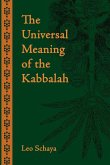Carolyn J Sharp
Irony and Meaning in the Hebrew Bible
Carolyn J Sharp
Irony and Meaning in the Hebrew Bible
- Gebundenes Buch
- Merkliste
- Auf die Merkliste
- Bewerten Bewerten
- Teilen
- Produkt teilen
- Produkterinnerung
- Produkterinnerung
Sharp devotes special attention to how irony destabilizes dominant ways in which the Bible is read today, especially when it touches on questions of conflict, gender, and the Other.
Andere Kunden interessierten sich auch für
![Textual Criticism of the Hebrew Bible Textual Criticism of the Hebrew Bible]() Textual Criticism of the Hebrew Bible66,99 €
Textual Criticism of the Hebrew Bible66,99 €![Inner Meaning of the Hebrew Letters Inner Meaning of the Hebrew Letters]() Robert M. HaralickInner Meaning of the Hebrew Letters90,99 €
Robert M. HaralickInner Meaning of the Hebrew Letters90,99 €![Sexual Pollution in the Hebrew Bible Sexual Pollution in the Hebrew Bible]() Eve Levavi FeinsteinSexual Pollution in the Hebrew Bible141,99 €
Eve Levavi FeinsteinSexual Pollution in the Hebrew Bible141,99 €![Jonah in the Shadows of Eden Jonah in the Shadows of Eden]() Yitzhak BergerJonah in the Shadows of Eden56,99 €
Yitzhak BergerJonah in the Shadows of Eden56,99 €![The Hebrew Bible as Literature The Hebrew Bible as Literature]() Tod LinafeltThe Hebrew Bible as Literature17,99 €
Tod LinafeltThe Hebrew Bible as Literature17,99 €![Fortress Commentary on the Bible Fortress Commentary on the Bible]() Fortress Commentary on the Bible65,99 €
Fortress Commentary on the Bible65,99 €![The Universal Meaning of the Kabbalah The Universal Meaning of the Kabbalah]() Leo SchayaThe Universal Meaning of the Kabbalah21,99 €
Leo SchayaThe Universal Meaning of the Kabbalah21,99 €-
-
-
Sharp devotes special attention to how irony destabilizes dominant ways in which the Bible is read today, especially when it touches on questions of conflict, gender, and the Other.
Produktdetails
- Produktdetails
- Verlag: Indiana University Press
- Seitenzahl: 376
- Erscheinungstermin: 23. Dezember 2008
- Englisch
- Abmessung: 238mm x 159mm x 27mm
- Gewicht: 639g
- ISBN-13: 9780253352446
- ISBN-10: 0253352444
- Artikelnr.: 23581236
- Herstellerkennzeichnung
- Libri GmbH
- Europaallee 1
- 36244 Bad Hersfeld
- gpsr@libri.de
- Verlag: Indiana University Press
- Seitenzahl: 376
- Erscheinungstermin: 23. Dezember 2008
- Englisch
- Abmessung: 238mm x 159mm x 27mm
- Gewicht: 639g
- ISBN-13: 9780253352446
- ISBN-10: 0253352444
- Artikelnr.: 23581236
- Herstellerkennzeichnung
- Libri GmbH
- Europaallee 1
- 36244 Bad Hersfeld
- gpsr@libri.de
Carolyn J. Sharp is Associate Professor of Hebrew Scriptures at Yale Divinity School. She is author of Prophecy and Ideology in Jeremiah: Struggles for Authority in the Deutero-Jeremianic Prose; and Old Testament Prophets for Today.
Contents
Preface and Acknowledgments
Introduction
1. Interpreting Irony: Rhetorical, Hermeneutical, and Theological
Possibilities
Irony and Contemporary Methodological Debates
Method: Multiaxial Cartography
Leaving the Garden: The Wisdom of Irony
2. Foreign Rulers and the Fear of God
Pharaoh and Abimelech as Innocents Ensnared
"Am I in the Place of God?": Joseph the Pretender
Belshazzar, Darius, and Hermeneutical Risk-Taking
The Ending of Esther and Narratological Excess
3. The Prostitute as Icon of the Ironic Gaze
Tamar the Righteous
Rahab the Clever
Jael the Bold
Gomer the Beloved
Ruth the Loyal
4. The Irony of Prophetic Performance
Oracular Indeterminacy and Dramatic Irony in the Story of Balaam
Hermeneutics of De(con)struction: Amos as Samson Redivivus
Contested Hermeneutics and the Undecidability of Micah 2:12-13
Irony as Emetic: Parody in the Book of Jonah
5. "How Long Will You Love Being Simple?" Irony in Wisdom Traditions
Ironic Representation, Authorial Voice, and Meaning in Qohelet
Rereading Desire as Doublespeak in Psalm 73
6. Conclusion
Irony and Scriptural Signifying
Leaving the Garden Again: New Beginnings
Notes
Bibliography
Index of Biblical Passages
Author Index
Subject Index
Preface and Acknowledgments
Introduction
1. Interpreting Irony: Rhetorical, Hermeneutical, and Theological
Possibilities
Irony and Contemporary Methodological Debates
Method: Multiaxial Cartography
Leaving the Garden: The Wisdom of Irony
2. Foreign Rulers and the Fear of God
Pharaoh and Abimelech as Innocents Ensnared
"Am I in the Place of God?": Joseph the Pretender
Belshazzar, Darius, and Hermeneutical Risk-Taking
The Ending of Esther and Narratological Excess
3. The Prostitute as Icon of the Ironic Gaze
Tamar the Righteous
Rahab the Clever
Jael the Bold
Gomer the Beloved
Ruth the Loyal
4. The Irony of Prophetic Performance
Oracular Indeterminacy and Dramatic Irony in the Story of Balaam
Hermeneutics of De(con)struction: Amos as Samson Redivivus
Contested Hermeneutics and the Undecidability of Micah 2:12-13
Irony as Emetic: Parody in the Book of Jonah
5. "How Long Will You Love Being Simple?" Irony in Wisdom Traditions
Ironic Representation, Authorial Voice, and Meaning in Qohelet
Rereading Desire as Doublespeak in Psalm 73
6. Conclusion
Irony and Scriptural Signifying
Leaving the Garden Again: New Beginnings
Notes
Bibliography
Index of Biblical Passages
Author Index
Subject Index
Contents
Preface and Acknowledgments
Introduction
1. Interpreting Irony: Rhetorical, Hermeneutical, and Theological
Possibilities
Irony and Contemporary Methodological Debates
Method: Multiaxial Cartography
Leaving the Garden: The Wisdom of Irony
2. Foreign Rulers and the Fear of God
Pharaoh and Abimelech as Innocents Ensnared
"Am I in the Place of God?": Joseph the Pretender
Belshazzar, Darius, and Hermeneutical Risk-Taking
The Ending of Esther and Narratological Excess
3. The Prostitute as Icon of the Ironic Gaze
Tamar the Righteous
Rahab the Clever
Jael the Bold
Gomer the Beloved
Ruth the Loyal
4. The Irony of Prophetic Performance
Oracular Indeterminacy and Dramatic Irony in the Story of Balaam
Hermeneutics of De(con)struction: Amos as Samson Redivivus
Contested Hermeneutics and the Undecidability of Micah 2:12-13
Irony as Emetic: Parody in the Book of Jonah
5. "How Long Will You Love Being Simple?" Irony in Wisdom Traditions
Ironic Representation, Authorial Voice, and Meaning in Qohelet
Rereading Desire as Doublespeak in Psalm 73
6. Conclusion
Irony and Scriptural Signifying
Leaving the Garden Again: New Beginnings
Notes
Bibliography
Index of Biblical Passages
Author Index
Subject Index
Preface and Acknowledgments
Introduction
1. Interpreting Irony: Rhetorical, Hermeneutical, and Theological
Possibilities
Irony and Contemporary Methodological Debates
Method: Multiaxial Cartography
Leaving the Garden: The Wisdom of Irony
2. Foreign Rulers and the Fear of God
Pharaoh and Abimelech as Innocents Ensnared
"Am I in the Place of God?": Joseph the Pretender
Belshazzar, Darius, and Hermeneutical Risk-Taking
The Ending of Esther and Narratological Excess
3. The Prostitute as Icon of the Ironic Gaze
Tamar the Righteous
Rahab the Clever
Jael the Bold
Gomer the Beloved
Ruth the Loyal
4. The Irony of Prophetic Performance
Oracular Indeterminacy and Dramatic Irony in the Story of Balaam
Hermeneutics of De(con)struction: Amos as Samson Redivivus
Contested Hermeneutics and the Undecidability of Micah 2:12-13
Irony as Emetic: Parody in the Book of Jonah
5. "How Long Will You Love Being Simple?" Irony in Wisdom Traditions
Ironic Representation, Authorial Voice, and Meaning in Qohelet
Rereading Desire as Doublespeak in Psalm 73
6. Conclusion
Irony and Scriptural Signifying
Leaving the Garden Again: New Beginnings
Notes
Bibliography
Index of Biblical Passages
Author Index
Subject Index








